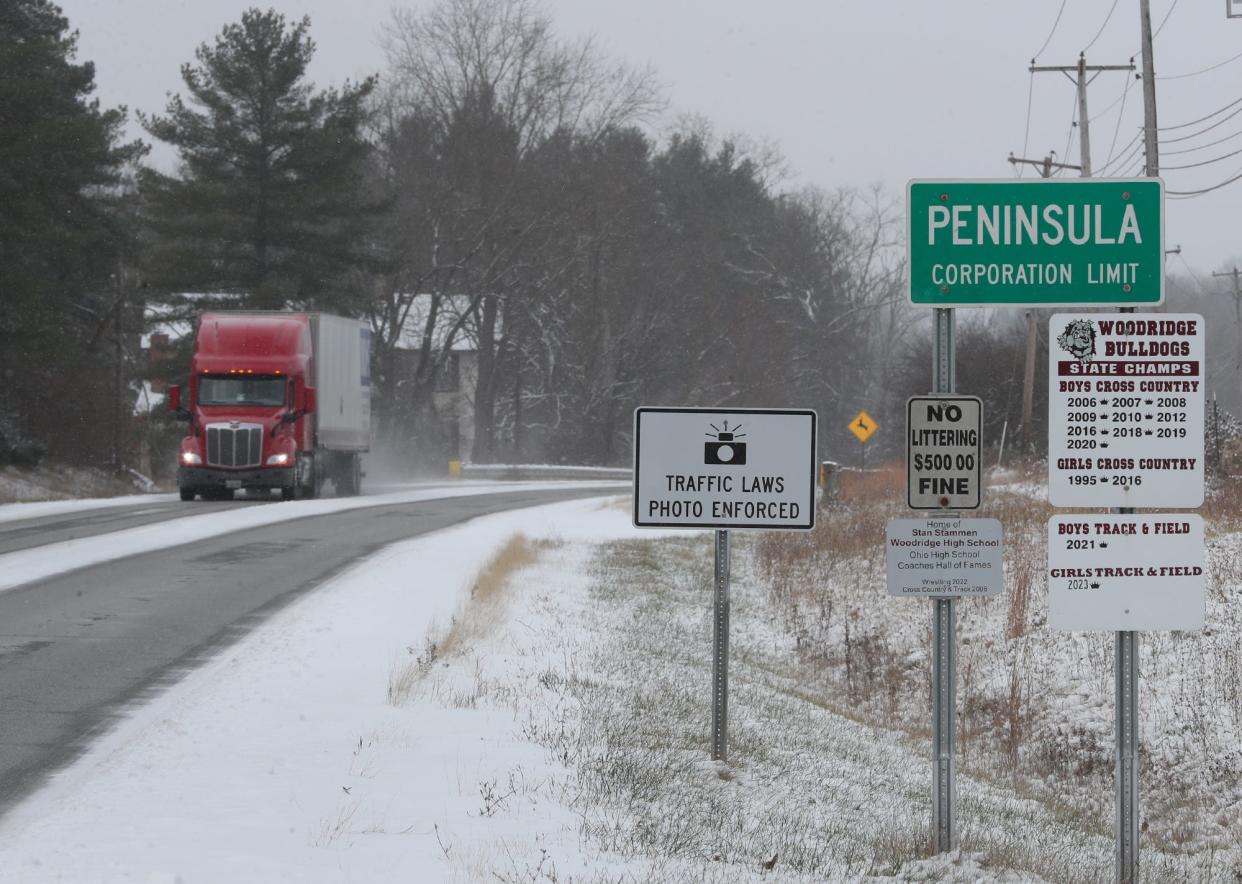Peninsula, Stow court flagrantly violating citizen rights with appeal charge for tickets

Peninsula officials have flagrantly violated Americans’ civil liberties by turning their police force into a collection agency that squeezes money out of the public.
Not only do their police officers ticket visitors at dizzying rates, but officials then force motorists to pay a fee to seek justice in a court of law. Not only is this practice unethical, it’s also unconstitutional.
The small village of Peninsula is nestled in the woods of Cuyahoga Valley National Park. Each day, about 12,000 visitors pass through Peninsula as they enjoy the natural wonders that surround the village of about 536 residents. Peninsula is perched along state Route 303, which cuts directly through the park. That artery is a lifeline for Peninsula, and a perfect opportunity to set up a speed trap.
In Peninsula, police used handheld speed cameras to issue 8,900 speeding tickets in just five months, generating millions of dollars’ worth of revenue for the village. About $560,000 has already been collected, which in the tiny village is equivalent to having each of the 536 residents pay more than $1,000 in fines each.
Worse yet, Stow Municipal Court requires individuals to pay a $100 fee to contest any traffic camera citation issued by Peninsula in court. For those who can’t afford that fee, they’re stripped of their constitutional right to due process. Even those who can pay are incentivized to just pay the ticket rather than risk doubling the cost of the citation if they lose the appeal.
These sorts of policing-for-profit schemes use law enforcement to counteract declining tax bases by aggressively enforcing fineable offenses such as speeding. The problem is these programs erode public trust, negatively impact public safety, and most importantly — they violate Americans’ civil liberties.
A 2019 study performed by the Institute for Justice showed a heavy reliance on fines or fees can reduce a community’s level of trust and cooperation with its local police department. An unrelated study in 2018 found towns who rely on citation revenue solve violent and property crimes at significantly lower rates.
Peninsula officials claim the speed enforcement initiative is meant to promote public safety, but those statements are just lip service. Peninsula’s population is shrinking and most of the town’s taxable land is tax exempt because it’s part of the national park. As recently as four years ago, Peninsula faced the potential of running out of money.
If this and other programs were truly about public safety, Peninsula wouldn’t have done the bare minimum to warn the public about the initiative’s existence. Peninsula only warned its citizens about the program, not the others who enter Peninsula while visiting the Cuyahoga Valley. The village placed very few legal ads in local newspapers about the program to meet the minimum 30-day warning period required by Ohio law.
No government should treat people like ATMs. The Constitution is meant to protect Americans from these types of government abuses. That’s why the Institute for Justice sent a letter to Peninsula officials warning them to bring their unconstitutional speed enforcement program into compliance with the Constitution or face a lawsuit.
Peninsula isn’t the first and certainly won’t be the last locality to abuse citizens in the name of greed. One 2019 report estimated nearly 600 jurisdictions nationwide generate at least 10% of their general fund’s revenue through fines and forfeitures. The Institute for Justice has sued dozens of local governments for infringing on citizens’ rights through collecting excessive fines or procedures that violate the Constitution’s due process clause.
Programs like Peninsula’s are nothing more than a blatant money grab. They abuse people’s civil liberties, destroy community trust and harm public safety, all to enrich municipalities. Luckily, the liberties enshrined in the Constitution can help Americans stand up to towns like Peninsula and force them to stop treating citizens like walking piggy banks.
Matthew Prensky is a writer and Bobbi Taylor is a litigation fellow at the Institute for Justice.
This article originally appeared on Akron Beacon Journal: Peninsula, Stow court violating citizen rights with appeal charge

